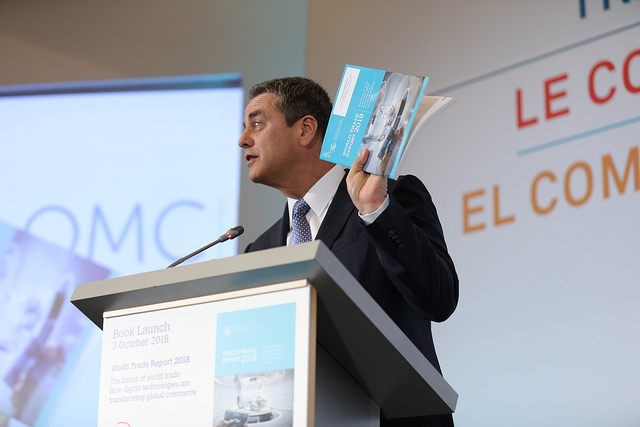São Paulo – The World Trade Organization (WTO) released this Thursday (22) a report on trade-restrictive measures adopted by G20 countries from May 16 to October 15 of this year. The organization cautions that import-restrictive measures taken in the period are covering an amount of trade estimated in USD 481 billion, a new high. The amount is six times greater than the one seen in the previous survey conducted by the organization, from October 2017 to May 2018. This series of surveys began in 2012.
The G20 includes the world’s top 20 economies. The report was released leading up to the bloc’s meeting, set to take place next week in Buenos Aires, Argentina.
In the period covered by the survey, 40 trade-restrictive measures were taken by G20 countries, such as tariff hikes, import bans and export taxes. On average, the countries adopted eight measures per month, two more than the average registered in the period from the previous survey. It is worth pointing out is that there is a trade war taking place between the United States and China, the two largest economies of the bloc and the world.
“The report’s findings should be of serious concern for G20 governments and the whole international community,” said Brazilian Roberto Azevêdo (picture above), the WTO’s Director-General. “Further escalation remains a real threat. If we continue along the current course, the economic risks will increase, with potential effects for growth, jobs and consumer prices around the world,” he added.
The WTO points out that the amount of trade benefited with measures aimed at facilitating trade also increased considerably to USD 216 billion. However, the amount is less than half of the volume covered by trade-restrictive measures. In the review period, G20 countries adopted 33 new trade-facilitating measures, such as eliminating or reducing import tariffs and export duties. In this case, the data is in line with the trend seen since 2012.
Translated by Sérgio Kakitani




